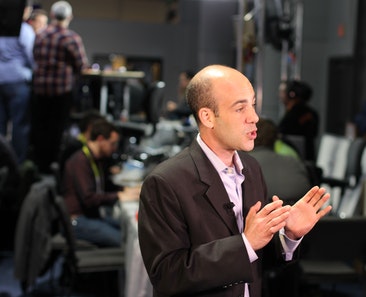Toomey: Charge foreign investors for buying U.S. $$
President Trump welcomed a rare bit of good news in June — a $27 billion monthly federal budget surplus. Much of that surplus was driven by revenues from recent U.S. tariffs. It’s a moment worth celebrating. However, if the White House appreciates what tariff revenues are doing for the U.S. Treasury, it’s time to consider a similar idea: charging foreign investors a fee for buying U.S. dollars.
Every day, overseas investors gobble up dollars to buy U.S. stocks, bonds, real estate and companies. Their demand for dollars is certainly flattering, since it reinforces the perceived stability of the U.S. economy. There’s also a hidden cost. This relentless purchasing of the dollar continues to inflate its value. And that, in turn, makes U.S. exports more expensive for overseas consumers.
The steady rise of the dollar has led to a vicious cycle. It not only makes America’s exports more expensive, but it also artificially cheapens the cost of imports entering the U.S. market. As a result, U.S. manufacturers continue to lose ground. And that leads to more offshoring — and the hollowing out of U.S. industry.
Essentially, the dollar’s lofty position has turned it into a windfall for the rest of the world at the expense of America’s manufacturers and their workers.
It doesn’t have to be this way.
To address the dollar’s overvaluation, what’s needed is a fee on foreign purchases of U.S. financial assets. And now, there’s growing bipartisan support in Washington for something known as a “Market Access Charge” (MAC).
A “MAC” is a small fee applied whenever foreign investors purchase U.S. dollars. The MAC itself would run to a mere 0.1% to 0.5% fee, barely noticeable to long-term investors. That small fee would have a powerful effect.
A bipartisan bill establishing a MAC was first introduced in Congress in 2019; the idea has since gained traction. Essentially, a federally legislated MAC could raise tens of billions of dollars in federal revenues annually without taxing Americans.
A MAC fee could gradually rebalance the dollar’s value, restoring it to a level that favors U.S. exports and also boosts domestic production.
Other countries already manage inflows of foreign capital as a means to protect their economies. Inexplicably, the United States doesn’t do this.
What’s particularly helpful is that a Market Access Charge wouldn’t resort to capital controls or currency manipulation. It would tell the world’s investors, “If you want the safety and liquidity of the U.S. dollar, you need to pay a small price for it.”
If tariffs can deliver a monthly surplus for the U.S. government, imagine what a market access charge could do. The fee applied to overseas investors would generate additional revenues for the federal government. It would also boost the competitiveness of America’s manufacturers, something that’s urgently needed.
It’s time for the United States to stop ceding control of its most powerful asset — the dollar — to faceless global investors. Washington must re-establish America’s sovereignty over its currency.
Jon Toomey is the president of the Coalition for a Prosperous America/InsideSources



